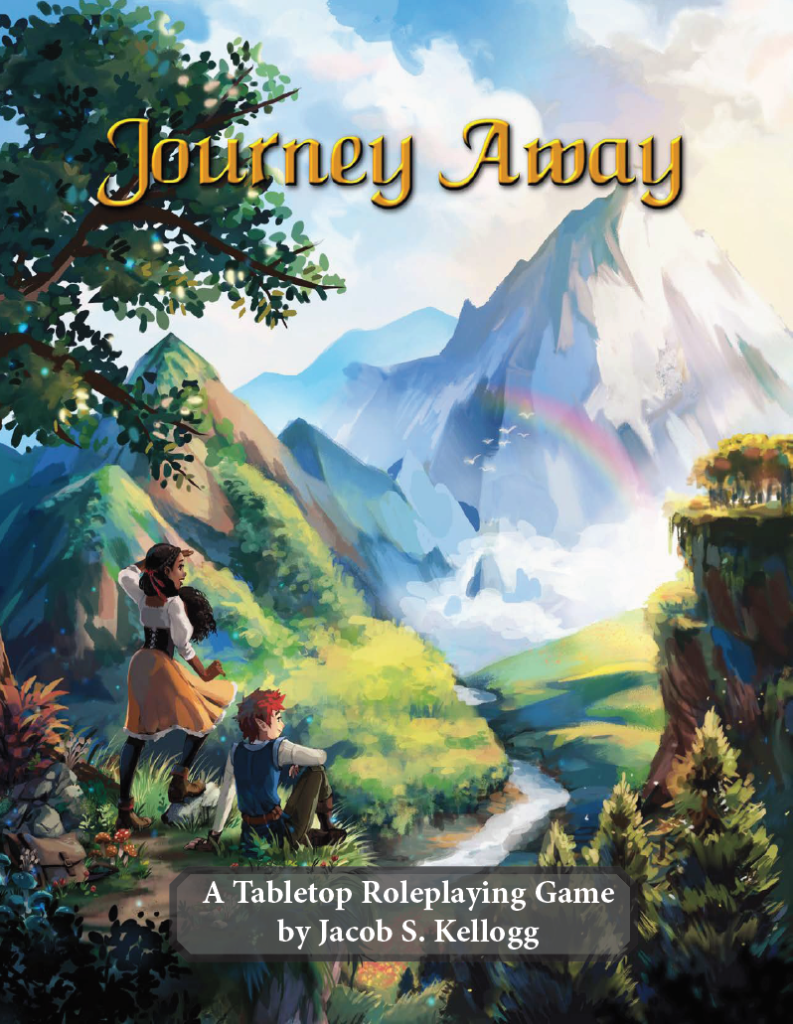I started to feel that I didn’t know roleplaying games well enough so I came up with the plan to read a roleplaying game corebook for every year they have been published. Selection criteria is whatever I find interesting.

Journey Away is a feelgood, almost freeform roleplaying game published as a 25-page booklet. The characters are townspeople in a zero-conflict fantasy world where magic has appeared only a few generations ago. They live in a remote village and one day decide to go on a journey into the forest, towards the city.
During play, the participants improvise various positive and negative encounters using a simple dice mechanic.
Characters are built by coming up with a list of attributes (“cute as a button” is an example) and assigning each a die (d4, d6, d8 etc. depending on how prominent the attribute is). As the characters wander in the forest, they roll the dice and the GM matches their roll with one of their own. The resulting two sets of rolls are compared to find how the balance of good and bad qualities in the scene tilts.
Since players are in charge of matching the dice rolls, it’s possible to play to lose on purpose. If the players roll well and the GM rolls badly, only good things happen. The players can decide to arrange the results in a suboptimal way so that there’s a little bit of drama in the scene. The choice to leave this option in the hands of the players is an interesting one, and I can see my own play groups doing this pretty much all the time.
Journey Away is a game where pleasant townspeople have nice encounters of wonder and moderate trouble. It’s obviously designed for players and GM who know how to play freeform and don’t need a lot of mechanical support.